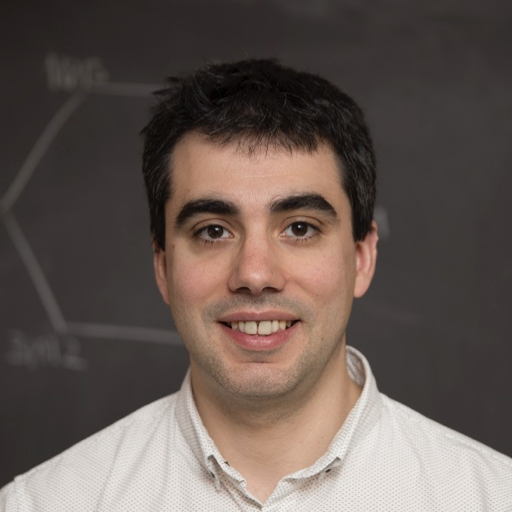
Diego Ruano Benito
| AREA | RESEARCH GROUP | INSTITUTE |
|---|---|---|
| Mathematics (Algebra) | SINGACOM | IMUVA (Mathematics Research Institute) |
I studied Mathematics at the universities of Valladolid (2002) and Kaiserslautern (2003), Germany, as part of a double degree program. I obtained my PhD in Mathematics at the University of Valladolid in 2007. I was a postdoctoral researcher at the University of Kaiserslautern (2007) and an H.C. researcher. Ørsted at DTU-Technical University of Denmark (2008).
I have been assistant professor (2009-2012) and associate professor (2013-2018) at Aalborg University (Denmark). In March 2018, I left a permanent teaching position at Aalborg University to take up a Ramón y Cajal researcher position at the University of Valladolid, my current position.
In digital communication, data can be altered by noise that causes a mismatch between the information sent and received. Error-correcting codes allow reliable and fast communication on these channels by adding extra symbols to the information sent so that, even if a corrupted version of the data is received, the original information can be recovered with a high probability. The challenge is to build codes that can decode as many errors as possible and that are accompanied by fast encoding and decoding algorithms.
Error-correcting codes, in addition to being of interest in their own right, have attracted increasing interest in recent years because of their application in cryptography, particularly in secret sharing and multiparty computation. A secret sharing scheme is a cryptographic method for encoding a secret into multiple partitions that are then distributed to participants so that only specific groups of participants can reconstruct the secret. They are used to store confidential information in multiple geographically separated locations and have various applications in computing. Multiparty computation studies the situation in which a group, each with the input of a function, wants to compute the output without revealing its input to the other participants.
Quantum computers are based on the principles of quantum mechanics using subatomic particles (qubits) as memory. Although quantum mechanics-based systems are very sensitive to perturbations and arbitrary quantum states cannot be replicated, error correction is possible. An important class of quantum error correction codes are stabilizing codes, which can be derived from classical ones.
My vision is to be a reference in the application of algebraic geometry and computer algebra in coding theory -classical and quantum- and cryptography.

